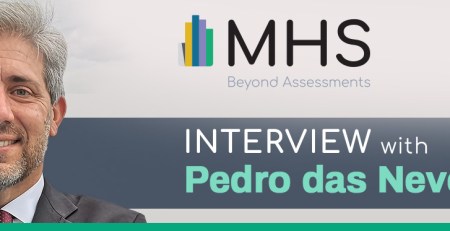Enhancing Outcomes For Communities And Supporting Justice Organizations
Within our Public Safety division, MHS provides evidence-informed training, tools, and insights to assist correctional, mental health, and law enforcement professionals–to help implement best practices that support their communities. We understand the urgent need for unbiased, equitable, solutions-focused tools. By realizing the potential in every individual, we offer improved outcomes for communities and support for justice organizations by helping to reduce recidivism and ultimately improve public safety.
Some of the key areas we address with our solutions are:
- Lack of focus on resilience and well-being for correctional workers
- Bias reduction within risk assessment processes
- Lack of tools that translate data into meaningful and impactful insights
- Difficulty keeping up with industry best practices and implementing meaningful change
Resilience and Well-Being
Burnout is a significant risk for correctional workers in the U.S. Over a quarter of correctional workers in the U.S. meet the criteria for a diagnosis of post-traumatic stress disorder. As a result, average annual turnover in correctional organizations can be as high as 45%. With the right tools in place, we can protect staff from burn-out, improve morale, reduce turnover and decrease the risk of suicide exponentially.
Often, well-being and resiliency related programs are promoted as a quick fix to solve problems related to these areas. But these band aid solutions are unproven in their efficacy and can be costly. MHS’ Staff Resiliency and Growth (STRENGTH) Corrections Resiliency Program is a practical peer-support training solution that uses advanced cognitive psychological techniques to impart the skills required to help officers effectively cope in a stressful environment, prevent burnout, and save organizations significant employer-related costs without the requirement of a mental health professional. STRENGTH is the only resiliency program available for correctional workers that is based on Cognitive Behavioral Therapy (CBT) and Rational Emotive Behavior Therapy (REBT).
Bias Reduction
We know that there is a bias habit in criminal justice that engrains disparities into the justice system. The impact of bias is severe. Research shows that racial bias may result in Black Americans serving 20% more prison time than White Americans for the same crime. 66% of those convicted of a felony in the U.S. serve prison time, and the average sentence is usually five years at an average cost of $25,000 USD annually.
Bias reduction is a goal all correctional organizations are currently trying to achieve. MHS’ Level of Service Tools (YLS/CMI 2.0, LS/CMI) can help assist with removing some of the bias out of the way individuals and their cases are processed. Rigorous research around the Level of Service/Case Management Inventory (LS/CMI)’s predictive accuracy has been documented through published peer-reviewed original studies, comparative meta-analytic reviews, and independent reviews. A meta-analysis of over 30 years of published research using samples of offenders in various settings across North America provides strong support for the validity of the Level of Service tools (Olver, M., Stockdale, K., & Wormith, J. (2014).
Business Intelligence
Law enforcement agencies around the world have a wealth of data that can be utilized to make efficient and impactful decisions. However, this data is often not utilized appropriately as this data usually ends up not being managed in an insightful way. Agencies without insight into data are not able to determine local norms and recidivism rates when challenged. Recent studies show that only 17% of the crime data in U.S.-based police departments are used proactively in day-to-day operations (Ahishakiye, 2019).
As criminal justice reform across the U.S. continues to focus on reducing incarceration, improving outcomes, and lowering recidivism rates, data management solutions like the innovative MHS GEARS platform provides an opportunity for agencies to have all their data in one place while also being able to track insights and create action plans. Further, with agnostic dashboarding, the ability to track cases and integrate management systems will allow for efficient and cost-saving planning and decision-making. Recommended treatment or case management policies can be based on local norms and historical data that can be pulled from one system allowing for data transparency.
Virtual Training
With new research and advancing technology, it’s hard to keep up with best practices in a cost-efficient way. Agencies without proper training are more likely to misuse assessments and continue using outdated strategies not aligned with the latest research. Online training takes 40-60% less time to complete than learning the same things in a classroom. As a result, online training has been found to increase productivity as staff can resume their work faster and immediately apply the skills they learned.
MHS offers regular, comprehensive training in several areas of interest through the Global Institute of Forensic Research (GIFR) learning portal. GIFR courses are the premier online training for professionals involved in the assessment, treatment, and monitoring of justice-involved individuals to aid in achieving a high level of professional excellence. These comprehensive courses are delivered by leading experts and facilitate the implementation of evidence-based best practices to enhance community safety, reduce recidivism, protect victims and vulnerable populations, and illuminate paths to prevent harm. Learning is available to all; however, becoming a GIFR member grants you additional access to hundreds of hours of Continuing Education training designed to maximize the efficacy of case management plans and fidelity of evaluations. GIFR Members receive monthly translational research bulletins and preferred access to all training opportunities. Recent training includes the Terrorist Radicalization Assessment Protocol-18 (TRAP-18), Workplace Assessment of Violence Risk Version 3 (WAVR-21), Motivational Interviewing, Psychopathy Checklist-Revised (PCL-R), STRENGTH Resiliency, and many more. Each offering is presented by the developers of the tools, accredited trainers, or thought leaders within the relevant field.










